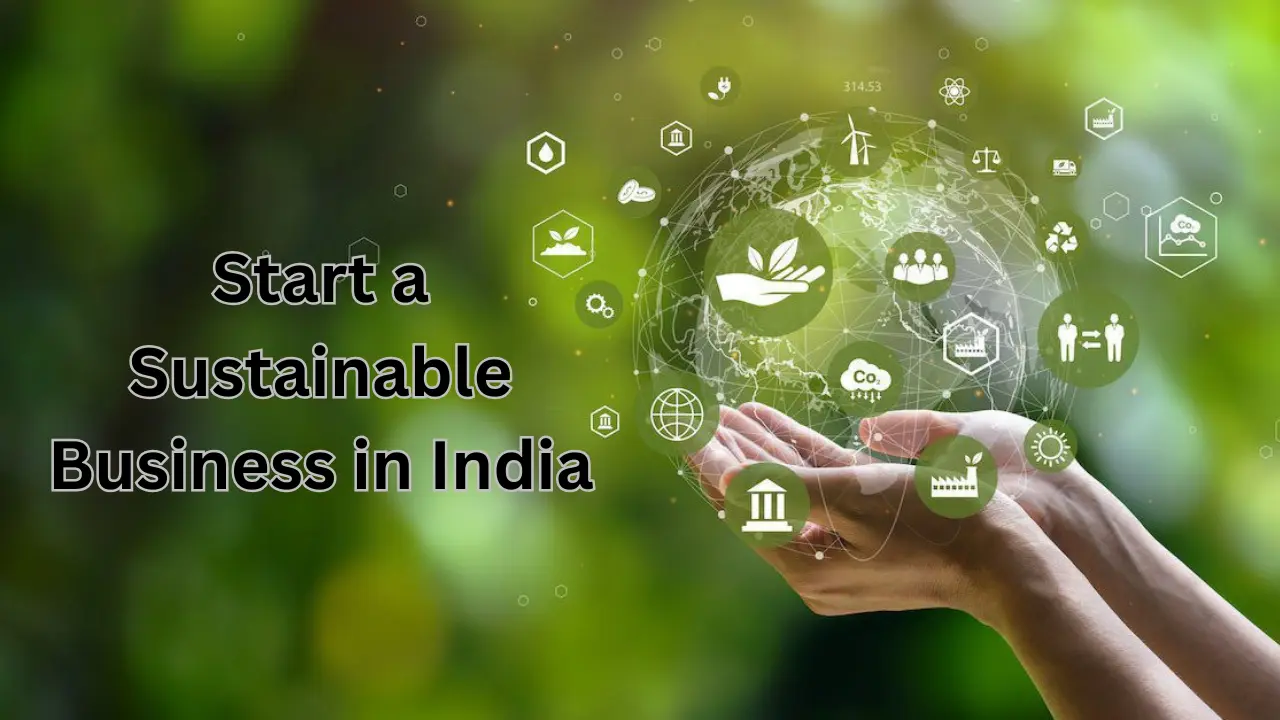Table of Contents
Starting a Start a Sustainable Business in India is becoming more important than ever as awareness of environmental issues grows. With zero-waste and upcycling trends gaining momentum, entrepreneurs have a golden opportunity to create eco-friendly, profitable ventures. This article guides you through 7 powerful steps to build a thriving sustainable business, while highlighting related keywords such as “eco-friendly business ideas in India,” “zero waste startups,” and “upcycling business models.” Whether you’re a beginner or looking to pivot your business toward sustainability, this comprehensive guide will equip you with practical insights and strategies for success in the Indian market.
What does it take to start a sustainable business in India?
Starting a sustainable business in India involves understanding eco-friendly practices like zero-waste and upcycling, identifying market demand, creating a robust business plan, sourcing sustainable materials, and adopting green marketing strategies. Success depends on commitment to environmental values and meeting the growing consumer demand for responsible products.
1. Understand the Concept and Importance of Sustainability
Before you start a sustainable business in India, it’s essential to grasp what sustainability really means. It’s not just about selling eco-friendly products but embedding environmental and social responsibility into every business aspect. Sustainability focuses on reducing waste, minimizing carbon footprint, and supporting community welfare. For entrepreneurs, it means aligning your business goals with the planet’s health and future generations.
Research India’s current environmental challenges such as plastic pollution, textile waste, and e-waste to better position your sustainable solutions. Knowing this background will help you identify which sector your business can impact the most.
2. Identify Lucrative Zero-Waste & Upcycling Business Ideas
Zero-waste and upcycling are rapidly growing niches in India’s sustainability movement. Here are some promising business ideas:
- Zero-Waste Stores: Selling products without plastic packaging such as grains, spices, and household items.
- Upcycled Fashion: Creating clothing or accessories from recycled or discarded materials.
- Eco-Friendly Packaging Solutions: Producing biodegradable or reusable packaging alternatives.
- Furniture Upcycling: Refurbishing old furniture into trendy, sustainable pieces.
- Organic Composting: Collecting organic waste and turning it into nutrient-rich compost for sale.
Selecting the right niche should be based on your passion, local demand, and resource availability.
3. Create a Detailed Business Plan with Sustainability at its Core
A solid business plan is critical to start a sustainable business in India successfully. Your plan must integrate sustainable goals clearly:
- Mission & Vision: Highlight your commitment to sustainability and social impact.
- Market Research: Analyze customer segments that prioritize eco-friendly products.
- Financial Projections: Include costs of sustainable materials and potential price premiums.
- Supply Chain Strategy: Source raw materials ethically and locally when possible.
- Marketing & Branding: Focus on green marketing strategies, emphasizing your eco-conscious values.
Investors and customers today highly value transparency and environmental accountability.
4. Source Sustainable and Ethical Materials
Sourcing eco-friendly materials is fundamental when you start a sustainable business in India. Avoid conventional plastics, synthetic fibers, and harmful chemicals. Instead, focus on:
- Recycled fabrics and materials for products
- Locally sourced organic cotton or jute
- Natural dyes and eco-friendly inks
- Reusable and biodegradable packaging materials
Building relationships with suppliers who follow ethical labor practices also strengthens your sustainability credentials.
5. Leverage Digital Marketing to Promote Your Sustainable Brand
Digital marketing is a game-changer for new eco-friendly ventures. Use social media, content marketing, and influencer partnerships to amplify your message:
- Share your zero-waste journey and behind-the-scenes stories
- Educate customers on sustainability benefits
- Engage communities with challenges and giveaways focused on green living
- Utilize SEO to rank for keywords like “sustainable business India” and “upcycling startups India”
Authentic storytelling combined with SEO best practices drives traffic and builds loyal customer bases.
6. Comply with Legal & Environmental Regulations
To ensure long-term success, stay informed about India’s business laws related to sustainability:
- Get necessary licenses and permits
- Follow guidelines on waste management and pollution control
- Consider certifications like IGBC Green Business Certification or ISO 14001 for enhanced credibility
Compliance protects your brand reputation and helps you access government incentives for green businesses.
7. Measure Impact and Adapt Continuously
A sustainable business is never static. Track your environmental and social impact regularly:
- Monitor waste reduction and resource efficiency
- Collect customer feedback on eco-friendly products
- Adjust strategies to improve sustainability and profitability
Use tools like Life Cycle Assessment (LCA) and sustainability reporting to demonstrate your progress transparently.
Related Keywords to Boost SEO
| Keyword | Search Intent | Usage Suggestion |
|---|---|---|
| Eco-friendly business ideas India | Informational | Use in introduction and Step 2 |
| Zero waste startups India | Transactional | Use in marketing and business plan sections |
| Upcycling business models | Informational | Use in Step 2 and sourcing materials |
| Green marketing strategies India | Informational | Use in marketing section |
| Sustainable supply chain India | Transactional | Use in sourcing and business plan |
Conclusion: Empower Your Future by Starting a Sustainable Business in India
Starting a sustainable business in India is not only a smart financial decision but a commitment to preserving our planet. By following these 7 powerful steps—understanding sustainability, choosing the right zero-waste or upcycling idea, creating a detailed plan, sourcing ethically, leveraging digital marketing, ensuring compliance, and measuring impact—you can build a thriving venture that benefits both you and the environment.
As consumer preferences shift towards greener alternatives, your eco-friendly business will gain momentum, trust, and success. Embrace this journey with passion and innovation to make a meaningful difference today.
Frequently Asked Questions (FAQs)
1. What are the first steps to start a sustainable business in India?
The first steps include researching sustainability concepts, identifying zero-waste or upcycling niches, and creating a solid business plan focused on eco-friendly goals.
2. How can I find sustainable suppliers in India?
Look for local suppliers with green certifications, attend eco-friendly trade fairs, and connect with sustainability networks or chambers of commerce in India.
3. Are there government incentives for sustainable businesses in India?
Yes, India offers various incentives and subsidies for green startups under schemes like the Startup India program and environmental grants.
4. How important is digital marketing for a sustainable business?
Digital marketing is crucial to educate customers, build brand loyalty, and reach eco-conscious audiences effectively and affordably.
5. Can upcycling be profitable in India?
Absolutely! Upcycling leverages waste materials creatively, reducing costs while appealing to environmentally conscious consumers, making it a profitable venture.








2 thoughts on “Start a Sustainable Business in India: 7 Powerful Steps to Thrive with Zero-Waste & Upcycling Trends!”